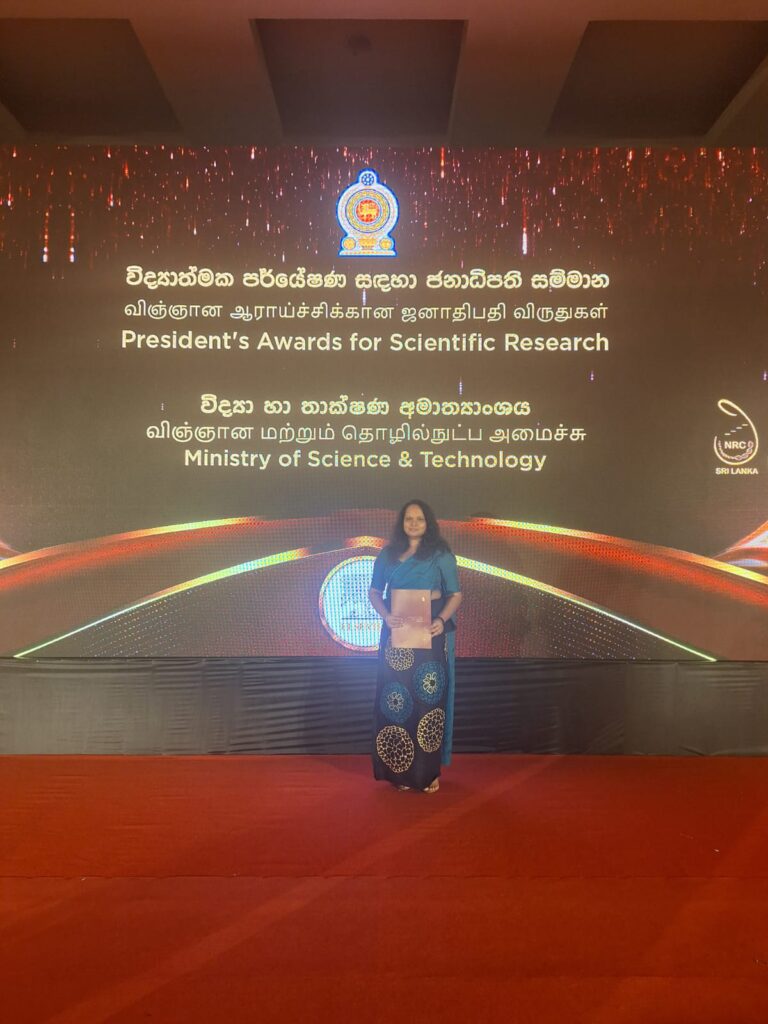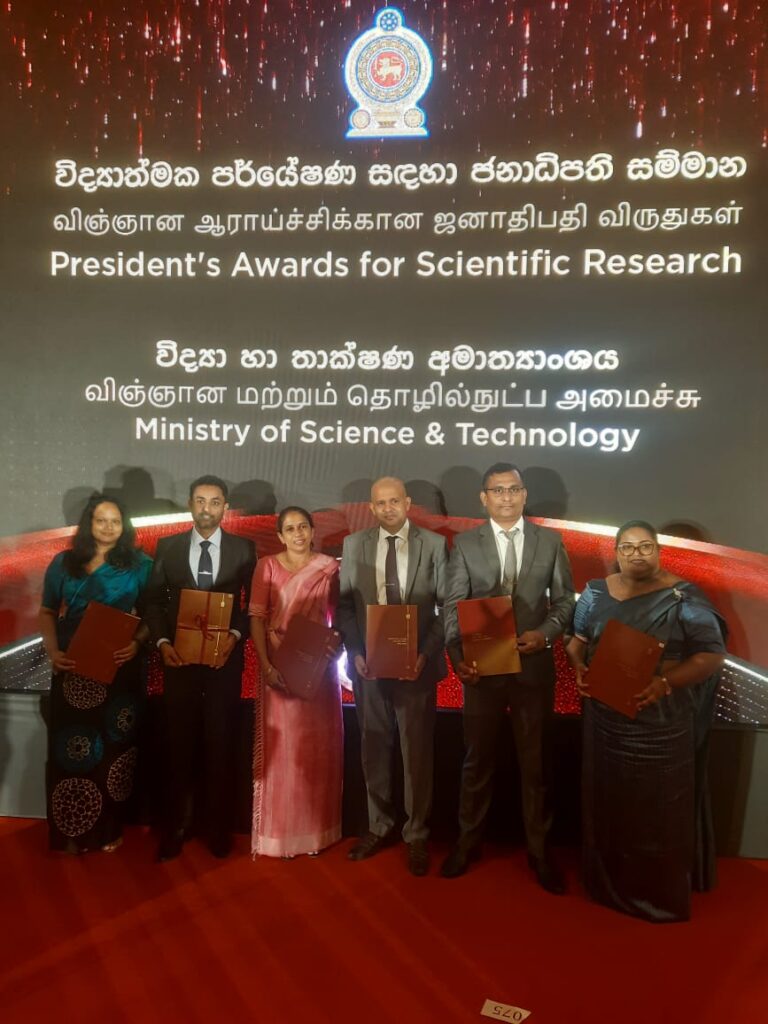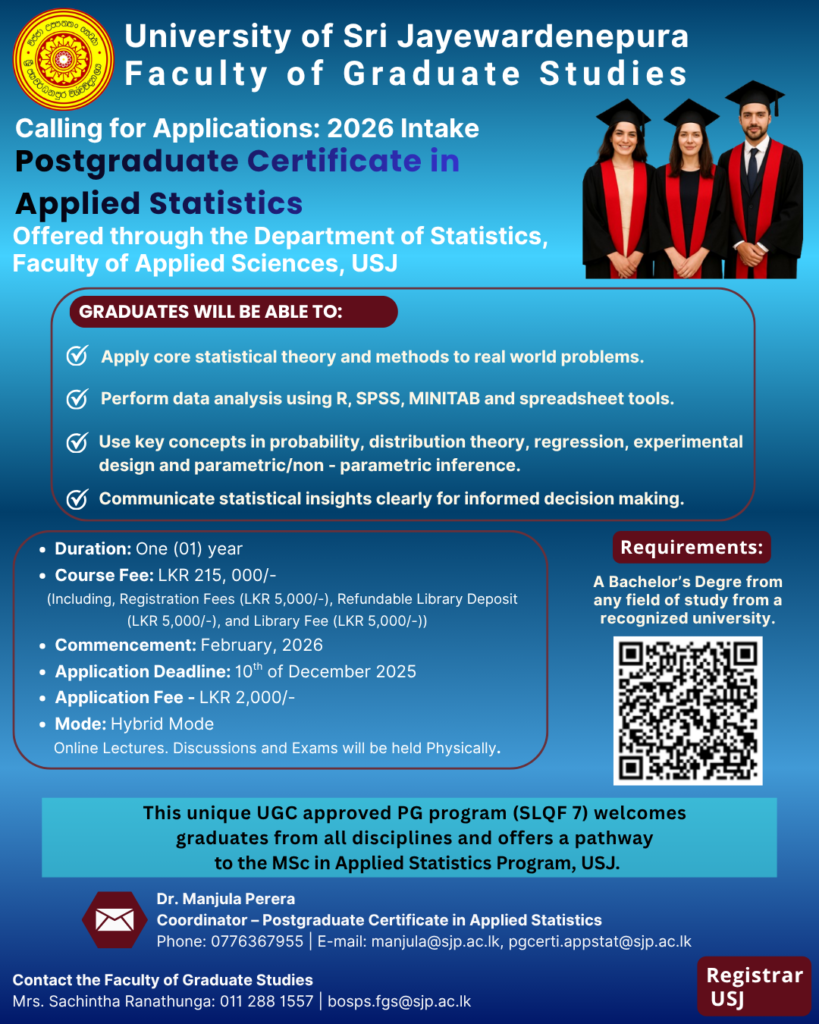The Department of Statistics is delighted to announce that Dr. Chathuri Jayasinghe, Senior Lecturer of the Department of Statistics, has been awarded the President’s Award for Scientific Research 2025 at the National Research Council (NRC) President’s Research Awards for Scientific Research Ceremony, held on 18th December 2025 at Waters Edge.
This prestigious national award was conferred in recognition of Dr. Jayasinghe’s outstanding research contributions through her publications from the year 2021, reflecting her commitment to high-quality scholarly work and her significant contribution to the advancement of scientific research in Sri Lanka.
We are immensely proud of Dr. Jayasinghe’s achievement, which brings great honour to our department and the university. We extend our heartfelt congratulations to her and wish her continued success, good health, and excellence in all her future academic and research endeavours.





